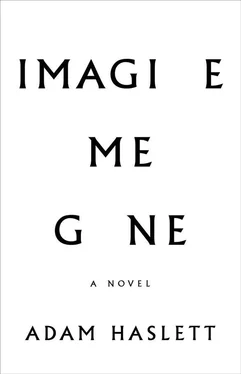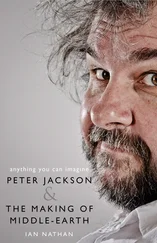In the meadow at the end of the street, the late-blooming asters have flourished despite the drought. The last snowy clusters run all the way up the slope to the verge of the woods. With your back to the road you get just a hint of wilderness, of what it would be like if none of us had ever come here. I used to avoid this section of my loop, it being the path John likely took. But eventually the avoidance became the reminder, and so for a long time now it has all been one, this place where he was, and I still am, the street and the field, alive with the change of seasons.
Around the yard lately I’ve been clipping back the red flowering branches of the euonymus, which was threatening to take over the driveway. There are bulbs to be planted, and beds to be re-soiled, along with the raking and mowing, which Michael has been such a help with. I don’t have to ask him, he offers. We’ve taken all sorts of things to the dump which I wouldn’t have been able to carry out of the bulkhead on my own: the tea chests in which we shipped our books back and forth across the Atlantic, full of old magazines; Alec’s and Celia’s high school belongings; a dorm room’s worth of furniture Caleigh left with us ages ago. All of it good to be clearing out, given the situation.
We have breakfast together most days. He goes upstairs to his computer while I’m at work, and he’s there at the house to greet me when I get home. I make supper, he does the dishes, often we watch a film before bed. The truth is I quite like having him with me again. He’s a considerate person and always has been. He does talk about his predicament and his ideas at never-ending length, which means he’s not always the best listener, but still, we’re company for each other.
It was my friend Suzanne who recommended the real estate agent. She said Veronica was very pleasant and down to earth, unlike most of them, and that if I wanted, she would come by and have a look, just to see what the possibilities might be. I wouldn’t be considering it if everything else I owe now didn’t make it so hard to keep up the mortgage. The hospital’s bill collectors are relentless. They call at all hours. They can be so unpleasant on the phone, as if we were criminals. And then with Michael not enrolled in his program, the loans I signed for him have come due, and there are those calls as well. I wish they would simply write. Then I could organize all the papers and take stock of them. I do hate not wanting to pick up my own phone when it rings.
I can’t tell Alec about Veronica, or about the listing contract on my desk that she’s waiting for me to sign. He’d stop me. And I don’t want to bother Celia with all of it, not yet. It seems there might be seventy thousand or so left after everything’s paid off, which is certainly more money than I’ve ever had at one time, and plenty to rent us an apartment. I would miss the garden, of course. That I can’t pretend.
It was almost ten months ago that I got a call from Michael’s doctor at the university. Michael had mentioned her to me, Dr. Greenman, and said that he found her sympathetic, which she certainly sounded on the phone. She said he had stopped a medicine too quickly, and that he’d been admitted to the hospital out there. It would be best if he took a leave of absence from school, she told me, and got transferred to a facility nearer home. Celia was the one who called her back and made the arrangements. Alec instructed me not to sign anything at the hospital here until he looked at the papers, but it all happened quickly, picking Michael up at the airport and driving him to that fortress of a building up on the North Shore. They wouldn’t admit him unless I signed, so I did, which is why the bills now come addressed to me.
I drove up there to visit him almost every day, bringing him bags of pistachios, which he’s always loved, and music magazines, and whatever toiletries he needed. His roommate was younger, in his early twenties, and pale as a sheet. He didn’t seem to have any visitors of his own, so I brought nuts for him too, and pears, which he thanked me for in a whisper. Where his parents were, I have no idea.
At times Michael would be asleep when I arrived, and I would sit by the window with the paper, not wanting to disturb his rest. He lay on his stomach and side, his shoulder rising slightly with each breath. I hadn’t watched him sleep since he was a boy. His hands and feet still had their little twitches about them, and he swallowed with a motion of his whole neck, and burrowed into his pillow. Before Celia and Alec were born, I used to stand over his bed and wonder at him: the mystery of his sleep, of his having a life separate from my own, sequestered in the privacy of dreams. A warm feeling, but lonely, too, because I loved him with more need than anyone I’d loved before, and when he slept I understood that he could leave me, and that eventually he would. At least in sleep he had a respite from bodily tension, the kind that had been with him from the very beginning, and which I had only ever been able to assuage briefly and in small measure.
I was younger then than he is now. Which makes the sequence wrong, being at his bedside like that.
None of the children, Michael least of all, would have wanted to hear that it happened to be almost forty-one years since I had taken the bus to Lambeth to visit their father in another north-facing hospital room. What do the dates matter? I could hear them asking, and I would have had no answer to satisfy them. They think it’s simple of me, to keep track of time this way. I don’t ascribe anything deep to it, I don’t say it means anything in particular, other than that I’m sure I spend too much time thinking about the past. But it is a way to remain connected. Like visiting each of them if they move, so I can picture exactly where they are, which I do every night as I’m going to sleep, the images bridging the distance. Dates do the same. If I measure off the months and years, it is to link me to them, and back to them when they were children, and earlier still to when John and I were together before we were married, when everything was just beginning.
The reason, it turned out, that Michael was sleeping so much in the hospital was the new drug he had been put on. I don’t remember the name of it; it begins with a Z. Dr. Bennet said it was an antipsychotic, but that I shouldn’t be alarmed. Michael wasn’t at all psychotic, he said, it was just that the medicine happened to be effective for anxiety as well.
When he first came back to the house, Michael did seem calmer. After a month or so I noticed he’d begun to put on weight. Good, I thought. He’d always been thin as a rake; it seemed a sign of health. But it kept going. He wasn’t eating vast amounts of food — I don’t cook vast amounts of food — but he got bigger by the week. In the last nine months, he’s put on forty pounds, at least. He didn’t remotely have a belly before but he does now. He’s gone from concave to nearly barrel-chested. Even his eyes are set farther back in his head, encased in an extra layer of flesh. It’s not right. His frame was never meant for it. This is the medicine they give to a man trying to regain his confidence? Together with all the other drugs, it’s slowed his mind. When he talks, he pauses and halts, gets lost and trails off.
I do my best to bring him walking with me, especially if he’s still in the house when I get back from work. Just fifteen or twenty minutes around the neighborhood at a decent pace to get him moving, not for the sake of his weight but because it’s not good to be so sedentary. He usually says he’d rather not, and then I have to convince him. And on top of that persuade him that he doesn’t need to bring his messenger bag, that black sack he can’t be without. He’s got half a pharmacy in there, along with books and papers. He treats it like a survival kit wrapped in a safety blanket. What if I need something while we’re out? he’ll say. On a walk? I ask. In the supermarket? It makes no sense. But each time I bring it up, it’s as if I’ve never mentioned it before, as though he’s never contemplated being without it and has to consider the risk anew. If I press, he relents, but I don’t always, and so sometimes he walks beside me with the overstuffed bag slung over his shoulder like a deliveryman taking a stroll, and I wonder what people think when they see the two of us go by.
Читать дальше












